
Collaborative Ongoing Growth Strategies
This page is about supporting the collaborative and ongoing growth of all participants in the Learning for Life program. It includes open source strategies and resources for supporting and collaboratively growing with Pre-K, Elementary, Intermediate, Secondary, and Post Secondary participants. We discuss this with the following sections:
- Growth Strategies Overview
- Why Open Source these Forms
- Ways to Contribute
- Significant Contributors to this Component
- Growth Strategies Details
- Summary
- FAQ
- Resources
RELATED PAGES
EDUCATION OVERVIEW | HOW TO USE THIS PROGRAM | OUR OPEN SOURCE PURPOSE
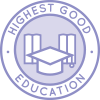
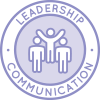
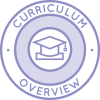
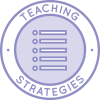
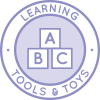
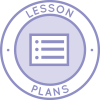
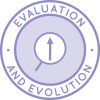
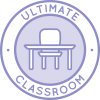
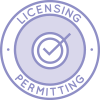
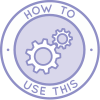
GROWTH STRATEGIES OVERVIEW
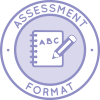 The recommended strategies for everyone’s ongoing growth within each age group are specific strategies for helping improve the growth experience within all aspects of the learning and teaching process. The focus is on developing a Growth Mindset (for everyone), a philosophy and attitude of “do your best/enjoy the journey,” and there being “no failure, only feedback.” This applies to both Learners and Educators within the Learning for Life program and emphasizes that the How and Why a Learner used to come up with an answer is more important than the right answer. Life-planning skills combined with how to give and receive feedback are also emphasized.
The recommended strategies for everyone’s ongoing growth within each age group are specific strategies for helping improve the growth experience within all aspects of the learning and teaching process. The focus is on developing a Growth Mindset (for everyone), a philosophy and attitude of “do your best/enjoy the journey,” and there being “no failure, only feedback.” This applies to both Learners and Educators within the Learning for Life program and emphasizes that the How and Why a Learner used to come up with an answer is more important than the right answer. Life-planning skills combined with how to give and receive feedback are also emphasized.
WHY OPEN SOURCE THE GROWTH STRATEGIES
 One Community is about creating positive and permanent global transformation through open source and self-replicating teacher/demonstration hubs. In support of these, we developed tools and structures for assessing, maintaining, and improving the educational process and experience for both new and veteran members of our team. We then developed them for use in any environment where there are Teachers and Learners, Facilitators and Staff, Managers and Teams, etc.
One Community is about creating positive and permanent global transformation through open source and self-replicating teacher/demonstration hubs. In support of these, we developed tools and structures for assessing, maintaining, and improving the educational process and experience for both new and veteran members of our team. We then developed them for use in any environment where there are Teachers and Learners, Facilitators and Staff, Managers and Teams, etc.
Our hope in open sourcing these tools is to provide usable information for replication that also demonstrates and teaches the benefits of collaborative learning and work-environment development. In our opinion, doing this provides a path for improving educational and working relationships within both learning and work environments while also improving the learning and growth process for all participants.
Sharing and helping to support and spread ideas like this is directly in alignment with our Purpose and Mission, our Global-transformation Pledge, and Highest Good philosophy for open source creation, sharing, and making a difference in the world.

WAYS TO CONTRIBUTE TO EVOLVING THIS EDUCATION PROGRAM WITH US
SUGGESTIONS | CONSULTING | MEMBERSHIP | OTHER OPTIONS
SIGNIFICANT CONTRIBUTORS TO THIS COMPONENT
Ellen Ross Kaspi: Progressive Educator and Mind/Body Modality Specialist
Jessica Wienke: Organizational and Leadership Development Consultant
Sangam Stancza: Ph.D. and P.E.
Stephanie VanderKallen: Mental Health Professional and Teacher
GROWTH STRATEGIES DETAILS
 The purpose of the growth strategies is to engage all participants in their own learner-guided life coaching and human evolution process by helping all involved develop and maintain a Growth Mindset. A growth mindset is a philosophy and attitude of “do your best/enjoy the journey,” where there is no failure, only feedback. These strategies are part of the complete Evaluation and Evolution component and also work well in conjunction with the Foundations of Outstanding Leaders, Teachers, and Communicators component.
The purpose of the growth strategies is to engage all participants in their own learner-guided life coaching and human evolution process by helping all involved develop and maintain a Growth Mindset. A growth mindset is a philosophy and attitude of “do your best/enjoy the journey,” where there is no failure, only feedback. These strategies are part of the complete Evaluation and Evolution component and also work well in conjunction with the Foundations of Outstanding Leaders, Teachers, and Communicators component.
This section shares resources and discusses specific strategies with the following sections:
- Overall Growth Strategies Goals
- Pre-K Growth Strategies
- Elementary Growth Strategies
- Intermediate Growth Strategies
- High School/Secondary School Growth Strategies
- Post-Secondary (college, trade schools, etc.) Growth Strategies
If applied properly, the growth strategies presented here should make it easier for the Educator to provide supportive guidance and feedback in a way that helps all participants continue to learn and grow even more. The process should be fun, led by the Teacher/Facilitator but guided by the Learner, and a positive growth experience for everyone.

OVERALL GROWTH STRATEGY GOALS
The first and foremost growth strategy goal for all ages and learning levels is developing and maintaining a growth mindset. With it:
Whoever you are, wherever you are, you can learn ANYTHING! ~ Khan Academy
This 90-second video finishes with the above quote and shares why it is true:
This 2-minute video shows the differences between a fixed versus growth mindset:
This 5-minute video also introduces the differences between the mindsets and then adds illustrating how they can produce radically different approaches throughout everyday life:
Our foundations for developing and maintain a growth mindset can be summarized with these bullet points:
- Do your best and always maintain an enjoy-the-journey attitude/philosophy.
- There is no failure, only feedback. Use this feedback to try again and improve even more.
- How/Why you came up to the answer is more important than the right answer.
These are further developed and supported by the strategies, mindsets, and philosophies detailed in our Foundations of Outstanding Leaders, Teachers, and Communicators page.

PRE-K GROWTH STRATEGIES
For Pre-kindergarten Learners, consider adding the suggestions and resources below to those shared in the Growth Mindset resources shared in the Overall Growth Strategies Goals section of this page and the strategies, mindsets, and philosophies detailed in our Foundations of Outstanding Leaders, Teachers, and Communicators page.
Advanced learning ideas for hands-on educators:
- Added emphasis on making learning fun: At this age, arguably more than any other, it is important to make sure learning is always fun. If it’s not fun, challenge yourself to find ways to make it fun or change the activity.
- ALWAYS be true to your word: This means never lying to children. Even small/white lies/fibs are setting an example and can undermine trust in you as an Educator. For this reason, always be true to your word.
- Only reward behaviors you agree with: This one seems like common sense but is probably one of the most commonly ignored growth strategies. If a child is crying for something they want, throwing things, etc., don’t reward those behaviors if you don’t wish them to continue. Instead, teach them effective ways to communicate what they want and reward those behaviors.
- Make EVERY experience a learning experience: Children are sponges for information and constantly learning, even when you don’t think you are teaching them. All behavior has the potential to be modeled and everything you are doing can be a learning experience. Constantly ask questions and share information with children, this maximizes their engagement and learning.
- Involve children in cleaning, food preparation, and other routine activities: Following point #4 above, these activities are great opportunities to teach responsibility, motor skills, social skills, and so much more. Look for daily living and other routine activities you can involve children in and turn those activities into learning experiences.
- Avoid baby talk and incorrect names and labels: As already stated, children are sponges for knowledge and constantly learning, even when you don’t think they are. For this reason, use proper english and labels for things if your desire is for children to learn them properly. Your tonality and body language can make “dog” just as fun as “doggie” and you’ll help the child learn proper english and labels much faster if you are using them yourself.
- Never underestimate a young child’s ability to learn: Our experience is that even very young children can learn complex information, words, and concepts if the above strategies are applied. Never underestimate your child’s ability to learn and you’ll find they’ll learn even more and faster.
- Up-educated whenever you can: Going along with point #7 above, look for opportunities to up-educate. This means using higher-level learning concepts to teach easier ones if you can make it fun enough that the child stays engaged and is enjoying the learning process. Math, vocabulary, and Science can be great areas to explore this.
Other Resources:
- Article: “50 Ideas, Tricks, and Tips for Pre-K Teachers”
- Article: “11 Creative Ways To Make Learning Fun For Your Kids”
- Article: “Six Strategies for 21st Century Early Childhood Teachers”
- Education.com: Preschool Activities
- Consider the suggestions from these alternative learning systems: Montessori, Waldorf, Orff, Reggio, Multi-Intelligence, Bloom’s Taxonomy, Study Tech
- Send us your ideas

ELEMENTARY GROWTH STRATEGIES
For Elementary-level Learners, consider adding the suggestions and resources below to those shared in the Growth Mindset discussed in the Overall Growth Strategies Goals section of this page and the strategies, mindsets, and philosophies detailed in our Foundations of Outstanding Leaders, Teachers, and Communicators page.
Advanced learning ideas for hands-on educators:
- Make your education program about what they like: Kids at this age are usually developed enough that you can now start to really see what they enjoy most. Build your education program around their greatest likes.
- Seek to identify what their true passions are: Tying into point #1 above, be aware that children at this age will often want to please you so much that they’ll agree with almost anything they think you want to hear. Seek to really understand their perspectives, separating what they truly want from what they may be saying to make you as a parent or teacher happy. Finding their true passions and desires will make your education program that much more fun for everyone.
- Make everything fun: Constantly ask yourself, “are they having fun?” and “how can I make this more fun?” Almost every task can be turned into a game, opportunity for imagination, or art or play project. Challenge yourself to limit lecturing and bookwork and instead make as many activities as possible hands-on, interactive, and/or collaborative. If you do, you should find this increases the level of fun for all involved.
- Consider introducing higher-level learning: If you haven’t already, consider introducing more complex Math, Science, and other subjects at this level. If you make it fun enough, you’ll be amazing at what they can learn and more complex ideas properly explored will lead to learning the easier concepts.
- Be sure expectations are clear: When beginning any new lesson or task, be sure to share the purpose and goals of the task. Include examples of what the finished product could look like and encourage creativity. This is important because it emphasizes not only the “how” but also the “why” for your lessons.
- Include classroom discussion: Use classroom discussions to help build self esteem, teach leadership, and evaluate comprehension of the content. Do your best to encourage participation by all students and reward the willingness to give an answer as much as the correctness of the answer.
- Explore the power of self-talk: Self-talk is the voice in each of our heads. Teaching that what you say to yourself has an impact on how you feel about and understand things can make a huge difference in a person’s educational process and experience.
- Integrate and develop their understanding of strategies: Metacognitive strategies, the awareness of one’s own knowledge (article resource), or “thinking about thinking” are immensely helpful to understand and teach. Literally everything can be considered a strategy and thinking of everything as a strategy can be a very empowering way of understanding and expanding one’s own leaning process through analysis of what is working and what isn’t for themselves and others. Here are a few resource videos to help understand metacognitive thinking and how to apply it:
- Education.com: Kindergarten Activities | 1st | 2nd | 3rd | 4th | 5th
- Article: “TEAL Center Fact Sheet No. 4: Metacognitive Processes”
- Article: “Learn About Best Practices in Metacognitive Strategies”
- Article: “Ten Metacognitive Teaching Strategies”
- Article: “Most Common Teaching Styles Used with Elementary School Students”
- Consider the suggestions from these alternative learning systems: Montessori, Waldorf, Orff, Reggio, Multi-Intelligence, Bloom’s Taxonomy, Study Tech
- Send us your ideas
INTERMEDIATE GROWTH STRATEGIES
For Intermediate-level Learners, consider adding the suggestions and resources below to those shared in the Growth Mindset discussed in the Overall Growth Strategies Goals section of this page and the strategies, mindsets, and philosophies detailed in our Foundations of Outstanding Leaders, Teachers, and Communicators page.
Advanced learning ideas for hands-on educators:
- Seek feedback on your education style: At this age children given the right opportunity to give quality feedback can and will. Ask for this feedback and do your best to integrate what you learn. The One Community Assessment Format page is an excellent resource for how to do this.
- Foster a growth mindset: This age is a great time to review and apply even more what is discussed in the Overall Growth Strategies Goals section on this page.
- Focus on complex thinking skills and combination learning: Combine different subjects to stimulate creativity and keep things learner-focused. See the Teaching Strategies for Life and Lesson Plans for Life components for detailed resources to help with this.
- Use and teach advanced giving and receiving feedback strategies: Here’s One Community’s resource for giving feedback. Here is a WikiHow article on the “Feedback Sandwich.”
- Be aware of pop-culture and social influences: At this age, the external influences on children begin to increase. Be aware of the differing pop-culture and social influences each child may be resonating with and get creative with ways to integrate these into your learning experiences.
- Seek to understand home environment influences: Kids at this age can have many home factors that may be influencing their learning ability. These can be positive influences like a really hands-on parent or sibling, or negative influences like poor sleep or food choices, little or now quite places to learn or study, etc. Seek to understand these and leverage the positives and help address the negatives.
Other Resources:
- Education.com: Middle School Activities
- One Community Resource: Teaching Strategies for Life
- One Community Resource: Feedback Format
- One Community Resource: Lesson Plans for Life
- Article: “3 Techniques for Increasing Teenage Student Motivation”
- Article: “Secrets of the Teenage Brain: A Psychologist’s Guide for Teachers”
- One Community Resource: Assessment Format for Giving and Receiving Feedback
- Article: “10 Ways Teachers Can Instill a Growth Mindset in Students”
- WikiHow: How to Give a Feedback Sandwich
- Article: “Forget The “Praise Sandwich”: Five Better Ways To Give Good Feedback”
- Send us your ideas

HIGH SCHOOL/SECONDARY SCHOOL STRATEGIES
For Secondary-level Learners, consider adding the suggestions and resources below to those shared in the Growth Mindset discussed in the Overall Growth Strategies Goals section of this page and the strategies, mindsets, and philosophies detailed in our Foundations of Outstanding Leaders, Teachers, and Communicators page.
Advanced learning ideas for hands-on educators:
- At this level, the strategies outlined in the Foundations of Outstanding Leaders, Teachers, and Communicators page become especially helpful.
- The skills within the Technology and Innovation Molecule are also recommended as they cover things like test taking skills, advanced memory skills, advanced reading skills, etc.
- The Teaching Strategies for Life can make learning more fun and interesting also.
- Use and teach advanced giving and receiving feedback strategies: Here’s One Community’s resource for giving feedback. Here is a WikiHow article on the “Feedback Sandwich.”
Other Resources:
- One Community Resource: Foundations of Outstanding Leaders, Teachers, and Communicators
- One Community Resource: Technology and Innovation Molecule
- One Community Resource: Teaching Strategies for Life
- Education.com: High School Activities
- Article: “21 Essential Life Skills For Teens To Learn”
- Send us your ideas
POST-SECONDARY STRATEGIES
For Post-secondary Learners, consider adding the suggestions and resources below to those shared in the Growth Mindset discussed in the Overall Growth Strategies Goals section of this page and the strategies, mindsets, and philosophies detailed in our Foundations of Outstanding Leaders, Teachers, and Communicators page.
Advanced learning ideas for hands-on educators:
- Use the complete Evaluation and Evolution Structure.
- Use the Foundations of Outstanding Leaders, Teachers, and Communicators suggestions.
Other Resources:
- One Community Resource: Evaluation and Evolution Structure
- One Community Resource: Foundations of Outstanding Leaders, Teachers, and Communicators
- One Community Resource: Teaching Strategies for Life
- Send us your ideas

SUMMARY
 The growth strategies are designed to engage all participants in their own life coaching and human evolution process by helping in developing a Growth Mindset. A growth mindset is a philosophy and attitude of “do your best/enjoy the journey” and understanding that there is no failure, only feedback. This page working in conjunction with the rest of the Evaluation and Evolution Structure, Foundations of Outstanding Leaders, Teachers, and Communicators page, Technology and Innovation Molecule, and other resources on this site are designed to support this.
The growth strategies are designed to engage all participants in their own life coaching and human evolution process by helping in developing a Growth Mindset. A growth mindset is a philosophy and attitude of “do your best/enjoy the journey” and understanding that there is no failure, only feedback. This page working in conjunction with the rest of the Evaluation and Evolution Structure, Foundations of Outstanding Leaders, Teachers, and Communicators page, Technology and Innovation Molecule, and other resources on this site are designed to support this.
FREQUENTLY ANSWERED QUESTIONS
Q: Are all aspects of this Evaluation and Evolution component necessary?
We consider all aspects listed above as important but how a person or organization chooses to use them is up to that individual or group. To maximize the flexibility and application options, all components are designed to be usable in combinations, as part of the complete model, or as a stand-alone components.
Q: Above you say, “if you are doing it right, it is fun for everyone.” How do you make it fun when it seems disciplinary action is in order?
People’s and organizational approaches to discipline are diverse. If disciplinary action is something you or your organization has decided is necessary, our suggestion is to still maintain a positive and Learner-focused approach. This would mean focusing on the Learner’s goals, how their behavior could be changed to help them better achieve their goals, and then guiding the Learner to come up with the best approach for moving forward and any consequences associated with not living up to this self-created path for progress.
Q: What if I have my own evaluation system that I like better, can I use that instead?
Of course! All aspects of the Education for Life program are designed for use in any educational environment and with or without inclusion of any other aspect of the program.
OTHER RESOURCES
We're building a resource section. Click here if you have a suggestion or resource for this page.
OPEN SOURCE SUBJECT RESOURCES (click icons for complete pages)
OPEN SOURCE CURRICULUM OUTLINES (click image for summaries and links to complete pages)
CARE
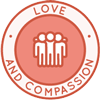
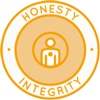
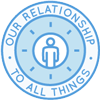
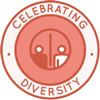
SHARE
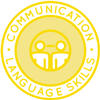
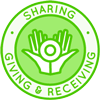
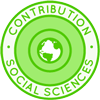
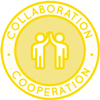
PLAY
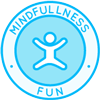
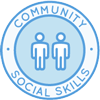
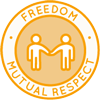
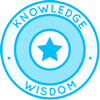
OPEN SOURCE TEACHING METHODOLOGY SUMMARIES
Montessori | Waldorf | Orff | Reggio | Multi-Intelligence | Bloom's Taxonomy | Study Tech | I-WE
INDEX OF ALL THE ONE COMMUNITY OPEN SOURCE LESSON PLANS
THE WORLD'S LARGEST ONLINE FREE EDUCATION RESOURCE ARCHIVE
RELATED CONTENT AND OTHER RELATED RESOURCES
We're building this resource section. Click here if you have a suggestion or resource for this page.
 One Community
One Community


